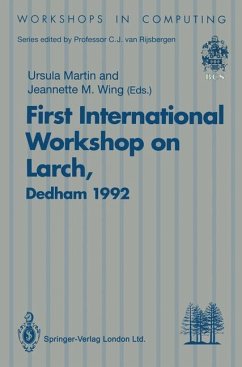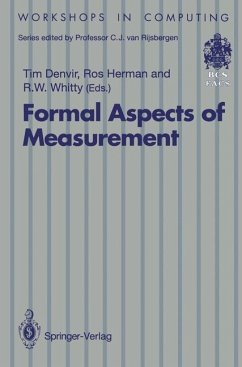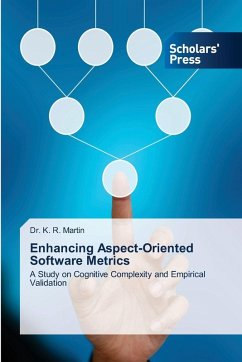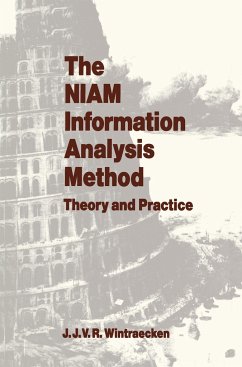
Empirical Foundations of Information and Software Science V

PAYBACK Punkte
19 °P sammeln!
This is the proceedings of the Sixth Symposium on Empirical Foundations of Information and Software Sciences (EFISS), which was held in Atlanta, Georgia, on October 19-21, 1988. The purpose of the symposia is to explore subjects and methods of scientific inquiry which are of common interest to information and software sciences, and to identify directions of research that would benefit from the mutual interaction of these two disciplines. The main theme of the sixth symposium was modeling in information and software engineering, with emphasis on methods and tools of modeling. The symposium cove...
This is the proceedings of the Sixth Symposium on Empirical Foundations of Information and Software Sciences (EFISS), which was held in Atlanta, Georgia, on October 19-21, 1988. The purpose of the symposia is to explore subjects and methods of scientific inquiry which are of common interest to information and software sciences, and to identify directions of research that would benefit from the mutual interaction of these two disciplines. The main theme of the sixth symposium was modeling in information and software engineering, with emphasis on methods and tools of modeling. The symposium covered topics such as models of individual and organizational users of information systems, methods of selecting appropriate types of models for a given type of users and a given type of tasks, deriving models from records of system usage, modeling system evolution, constructing user and task models for adaptive systems, and models of system architectures. This symposium was sponsored by the School of Information and Computer Science of the Georgia Institute of Technology and by the U.S. Army Institute for Research in Management Information, Communications, and Computer Sciences (AIRMICS). 17le Editors vii CONTENTS 1 I. KEYNOTE ADDRESS ............................................. .














